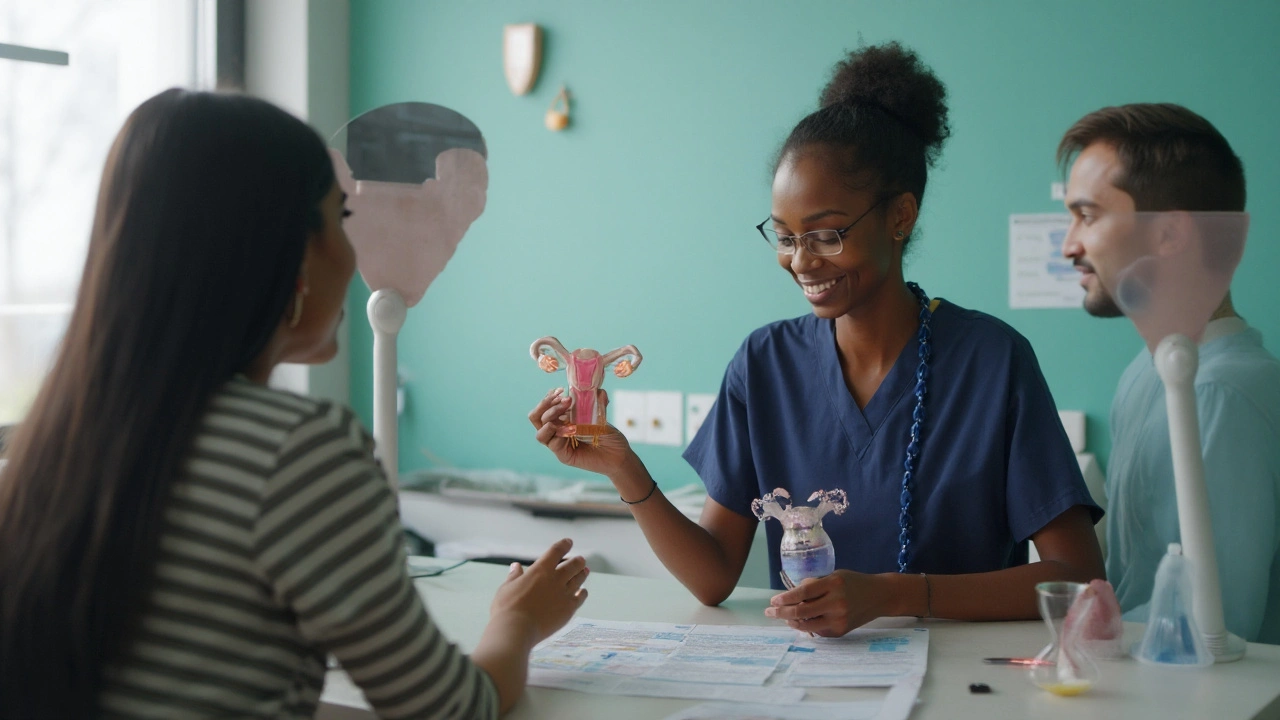Getting Pregnant After the Pill: What You Need to Know
If you’ve just stopped taking the birth‑control pill and are thinking about a baby, you’re probably wondering how fast your body will bounce back. The good news? Most women start ovulating within a month, and many get pregnant right away. Below we break down the timeline, what to watch for, and a few simple steps to boost your chances.
How Soon Can You Conceive?
The pill works by suppressing your natural hormone cycle. Once you miss your last active pill, hormone levels begin to rise again. For many, the first ovulation shows up in the first 2‑4 weeks. That means you could conceive as early as the first cycle after you stop.
However, it’s normal for a few cycles to be a bit off‑beat. Some women experience a short “blank” period where periods are irregular or lighter. This is just your body re‑establishing its rhythm, not a sign of infertility.
Age, overall health, and the type of pill you were on can affect timing. If you were on a low‑dose combined pill, the return to fertility tends to be faster than with a progestin‑only or extended‑cycle pill.
If you’re over 35 or have known reproductive issues, it’s smart to start tracking ovulation early. Simple tools like basal‑body‑temperature charts or ovulation predictor kits can help you spot the fertile window.
Tips for a Healthy Start
1. Take a multivitamin with folic acid. Folic acid (400‑800 µg daily) protects against neural‑tube defects and is recommended before conception.
2. Quit smoking and limit alcohol. Both can delay ovulation and affect egg quality. Cutting them out now gives your body a cleaner slate.
3. Keep a balanced diet. Focus on whole foods, lean protein, and plenty of fruits and veggies. Nutrients like iron, zinc, and omega‑3s support hormone balance.
4. Stay active, but don’t overdo it. Moderate exercise improves circulation and hormone regulation. Extreme endurance training can actually suppress ovulation.
5. Talk to your doctor. A quick check‑up can rule out hidden issues like thyroid problems or PCOS that might affect fertility.
Remember, stress is a fertility killer. Try to keep the pressure low—think of this as a natural transition, not a race.
Most importantly, listen to your body. If you miss a period for more than two months after stopping the pill, or if you’ve tried getting pregnant for six months without success (or three months if you’re over 35), it’s time to see a healthcare professional. They can run simple tests and give you a clear roadmap.
Getting pregnant after the pill is usually straightforward. By understanding the timeline, tracking your cycle, and adopting healthy habits, you give yourself the best shot at a smooth, happy transition to parenthood.

Contraception and Infertility: Myths vs Facts Backed by Science
Worried birth control hurt your fertility? Get science-backed facts on pills, IUDs, implants, and shots, plus timelines, checklists, and when to seek help.
Read more